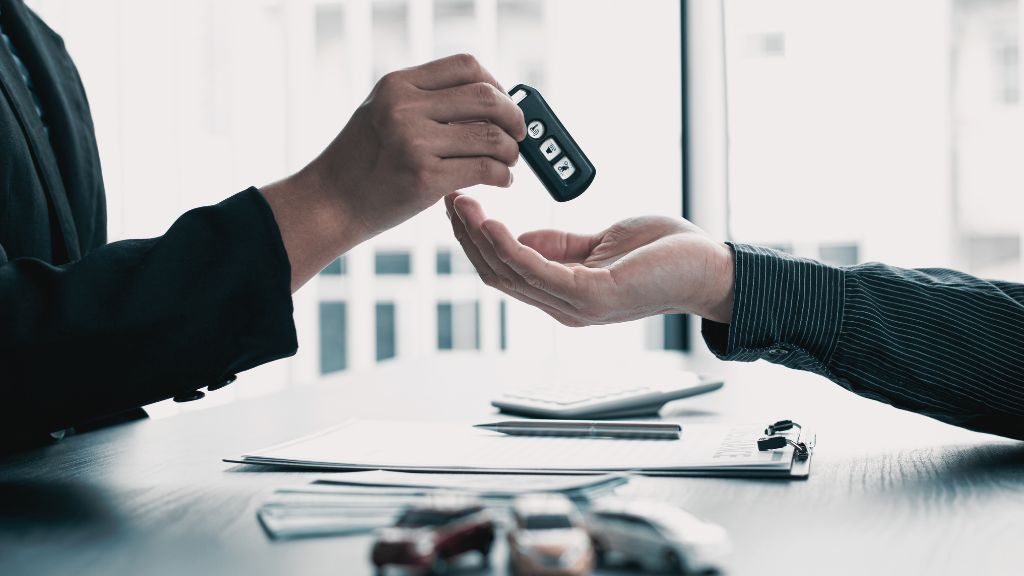Buying a car can be an exciting experience, but it can also be a stressful one, especially if you’re worried about getting scammed. Unfortunately, there are people out there who try to take advantage of car buyers with various scams. Knowing the red flags or signs of a scam can help you avoid these pitfalls and make a safe, informed purchase.
In this blog, we’ll go over some common warning signs and explain what are possible red flags or signs of a scam when buying a car.
What Are Possible Red Flags or Signs of a Scam When Buying a Car?
1. Unrealistically Low Prices
What to Watch For: If the price of a car seems too good to be true, it probably is. Scammers often lure buyers with unbelievably low prices.
Red Flag: A car priced significantly lower than similar models in the market should raise suspicion. This could mean the car has hidden problems, is stolen, or the seller is trying to trick you into sending money for a car that doesn’t exist.
How to Avoid: Always compare the price of the car with similar models. If the deal seems too good to be true, walk away.
2. Pressure to Pay Upfront
What to Watch For: Scammers often push buyers to pay a deposit or the full amount upfront before seeing the car.
Red Flag: Being asked to send money through wire transfer, prepaid debit card, or other non-secure methods before you’ve had a chance to inspect the car.
How to Avoid: Never pay for a car upfront without seeing it and ensuring everything is legitimate. Insist on seeing the vehicle in person and paying through secure methods.
Also read: Which Example Shows an Advantage of Owning a Car Over Leasing One?
3. No Vehicle History Report
What to Watch For: Legitimate sellers will have no problem providing a vehicle history report.
Red Flag: If the seller refuses to provide a vehicle history report or makes excuses about why they can’t.
How to Avoid: Always request a vehicle history report. This report provides important details about the car’s past, including accidents, repairs, and title status. If the seller won’t provide one, you can purchase it yourself from services like Carfax or AutoCheck.
4. Suspicious Seller Behavior
What to Watch For: The behavior of the seller can give you clues about whether a deal is legitimate.
Red Flag: If the seller is reluctant to meet in person, insists on communicating only through email or text, or provides vague answers to your questions.
How to Avoid: Make sure to meet the seller in a safe, public place. Ask specific questions about the car and the transaction. If the seller seems evasive or unwilling to meet, it’s best to move on.
5. Incomplete or Fake Documentation
What to Watch For: Proper documentation is crucial when buying a car.
Red Flag: Missing title, forged documents, or incomplete paperwork. Be wary if the seller claims they’ll “get you the title later” or says the title is in someone else’s name.
How to Avoid: Always check that the title is clear and in the seller’s name. Verify the Vehicle Identification Number (VIN) on the car matches the number on the title and other documents. Never proceed with a purchase if the documentation doesn’t check out.
Also read: What Is The Best Reason For Why Someone Would Want To Lease A House Instead Of Buy One?
6. Overly Eager Sellers
What to Watch For: A legitimate seller will want to sell their car, but a scammer might be too eager to close the deal.
Red Flag: If the seller is pushing you to make a quick decision or trying to rush the sale without giving you time to think or inspect the car properly.
How to Avoid: Take your time to thoroughly inspect the car and review all documents. Don’t let the seller pressure you into making a hasty decision.
7. Absence of the Car’s Location
What to Watch For: A scammer might claim the car is located far away, making it inconvenient for you to see it in person.
Red Flag: The seller claims the car is out of state, overseas, or otherwise inaccessible and suggests shipping the car after you make a payment.
How to Avoid: Always insist on seeing the car in person before making any payments. If the seller makes excuses or says the car isn’t available for inspection, it’s best to walk away.
8. Online Scams and Fake Listings
What to Watch For: Online platforms are common places for scammers to post fake car listings.
Red Flag: Listings that have little information, few pictures, or use stock photos instead of actual photos of the car. Also, be cautious if the seller’s contact information seems suspicious or if the listing uses poor grammar and spelling.
How to Avoid: Use reputable websites for car shopping and be cautious of listings that seem off. Research the seller and try to verify their identity and contact information.
9. Unwillingness to Allow a Mechanic Inspection
What to Watch For: A legitimate seller will typically agree to have a mechanic inspect the car.
Red Flag: The seller refuses to let you take the car for an inspection by a trusted mechanic or makes excuses for why it’s not possible.
How to Avoid: Insist on having the car inspected by a mechanic of your choice. If the seller refuses, it’s a major red flag, and you should consider walking away from the deal.
Also read: How Do a Lot of Students Incorrectly Prepare for Thinking About College?
10. Payment via Untraceable Methods
What to Watch For: Scammers often ask for payment through methods that are hard to trace and impossible to recover, such as wire transfers or prepaid debit cards.
Red Flag: The seller insists on payment via wire transfer, prepaid debit card, gift cards, or other untraceable methods.
How to Avoid: Always use secure payment methods. If possible, complete the transaction at a bank or through a secure online payment service that offers buyer protection.
Conclusion
Buying a car should be an exciting and positive experience, but it’s important to stay vigilant to avoid scams. By being aware of these red flags—unrealistically low prices, pressure to pay upfront, no vehicle history report, suspicious seller behavior, incomplete or fake documentation, overly eager sellers, absence of the car’s location, online scams, unwillingness to allow a mechanic inspection, and requests for untraceable payment methods—you can protect yourself from fraudulent deals.
Always do thorough research, take your time, and don’t hesitate to walk away if something doesn’t feel right. Trust your instincts and use reputable sources and secure payment methods to ensure a safe and successful car-buying experience.


